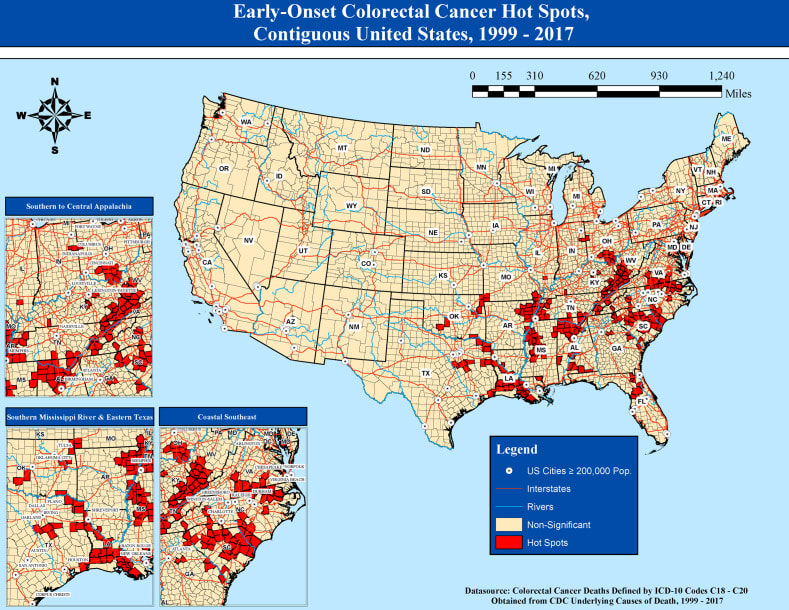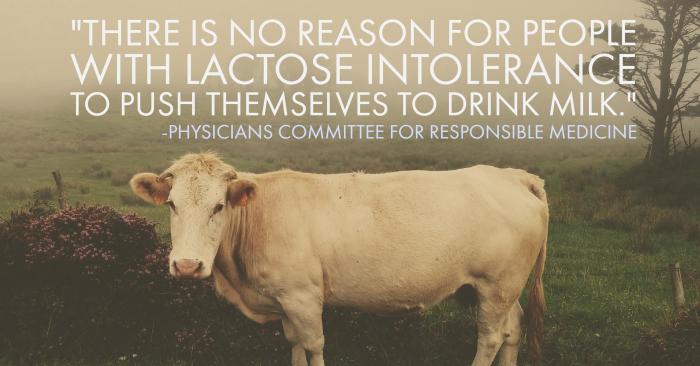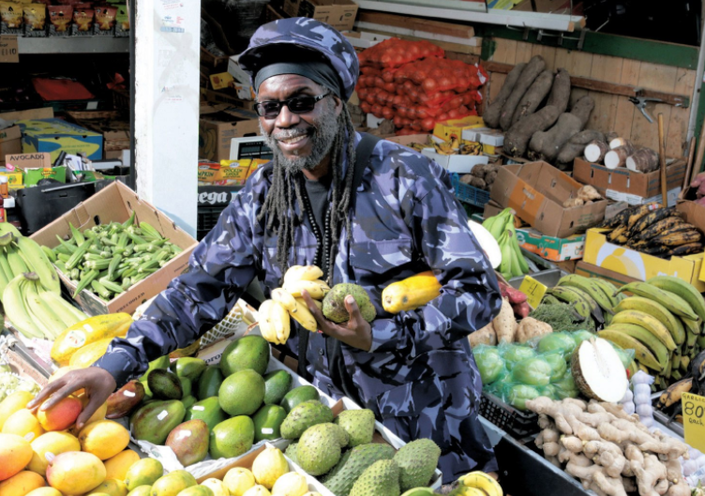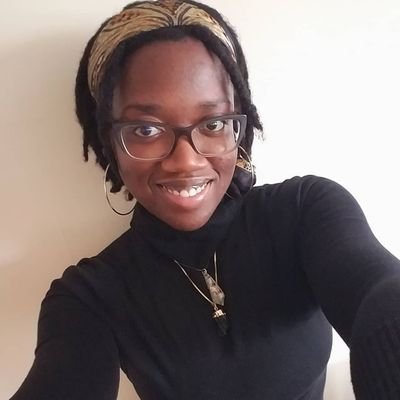|
When the news dropped of Chadwick Boseman’s death at the age of 43, I, like so many others, was in complete shock. Such an amazing talent couldn’t be gone so soon, it just didn’t make any sense. He was a game-changing actor, rising at a seemingly unstoppable rate to great heights in his career. His role as “Black Panther” revolutionized the superhero movie genre and Chadwick himself came to embody unmatched strength, power, and courage. Little did we know that he was even more courageous than we could ever imagine, as he’d spent years privately battling colon cancer. Chadwick’s death rocked us to our core. Like the deaths of many of those who were taken seemingly before their time, it was almost impossible to wrap our heads around. He was just too young. For Black Millennials in particular, it was a sobering moment to contend with. Even in the face of other possible threats to our lives, we were forced like never before to come face to face with our own mortality. Because if the man who so convincingly embodied a superhero could be taken so soon by sickness, then we’re all fair game. The cold, hard truth is that colorectal cancer rates are rising among people of younger ages. While we’ve grown to understand colorectal cancer as something that hits people in their fifties, sixties, or older, more and more Millennials, who are currently in their thirties and forties, are experiencing an uptick in cases. While it still remains relatively rare, the rate of colorectal cancer in adults under 50 has doubled since 1990. Such an increase in such a short amount of time can’t be attributed to genetics, and is more than likely being caused by environmental factors such as poor diet, lack of exercise, smoking, and possible environmental toxicants. Boseman was born and raised in Anderson County, South Carolina, which is one of 232 counties in the United States that have been identified as a hotspot for early-onset colorectal cancer. The majority of these hotspots are located in the Southern U.S., with other counties located further up on the East coast. In these hotspots, survival rates are significantly worse among Black men. This also suggests that the root cause is environmental rather than genetic. This isn’t the only racial disparity that exists for Black people when it comes to colorectal cancer. Blacks are more likely to develop and die from colorectal cancer at a young age than Whites in general, and it may have a lot to do with the environments that we’re raised in. While the common refrain is that we simply don’t know what’s causing this uptick in cases, there’s a lot that is known that points to a necessary need for increased vigilance amongst Black Americans.
The Diet Switch Study In 2015, a study was conducted comparing the diets of African Americans with rural South Africans. While colon cancer is the second leading cause of cancer death among Western nations, it’s actually relatively rare among rural Africans. The study sought to find out if diet was the cause. The initial screening of the gut microbiome of both groups found biomarkers of increased cancer risk among the Black Americans, such as more polyps and higher levels of potentially pathogenic bacteria. In the guts of the rural Africans, signs of anti-inflammatory, anti-neoplastic (anti-tumor) byproducts of fiber fermentation were found. The diets of both groups were then switched, with the rural Africans eating a more Westernized, high-fat diet while the Americans ate the more high-fiber, low-fat diet of the rural Africans. Within just two weeks, the rural Africans developed colonic inflammation and signs of increased colon cancer risk. The Americans’ diet change showed a decrease of the biomarkers that indicated increased colon cancer risk. One biomarker, secondary bile salts, which is a known carcinogen, was reduced by 70% in the American group after switching to a rural African diet. For the rural Africans, their secondary bile salts shot up by 400% eating a typical Western diet. To put it simply, eating a rural African diet made the American guts healthier while eating a standard American diet gave the rural Africans an increased risk of developing disease. This one study illuminates what a lot of us already instinctively know. The high-fat, low-fiber Standard American Diet is damaging to our health, and drastically increases the risk of developing colon cancer. An earlier study in 1999 suggested that it isn’t simply the lack of fiber that explains the differences in colon cancer rates between Black Americans and rural Africans, but the presence of “aggressive” factors such as too much animal protein and high-fat meals, as well as differences in bacterial fermentation in the gut. Another study found that there is indeed a difference in the bacterial population in the guts of African Americans even when compared to Whites in the U.S. African Americans tend to have a higher population of Bilophila wadsworthia, an inflammatory bacteria linked to cancer growth. This type of bacteria proliferates when fed a diet high in fat and animal protein. The Right Way To Feed Yourself - And Your Gut Bacteria There are certain things we know when it comes to the development of colon cancer. Red and processed meats have been found in a number of studies to be linked to an increased risk of colon cancer. High intake of ultra-processed foods has also been linked to colon cancer, with smokers being especially susceptible. Being overweight or obese also increases the risk of developing colon cancer, especially for men and especially if the weight is gained starting in early adulthood. Taking everything into account, one thing becomes clear: how we eat matters. Eating a diet rich in red and processed meats as well as high fat foods while neglecting to eat fiber-rich, antioxidant-rich, anti-inflammatory foods on a regular basis sets us up for poor health outcomes and dramatically increases our risk of developing a number of life-threatening diseases, including colon cancer. When we eat, we aren’t simply feeding ourselves. We’re also feeding the trillions of tiny bacteria that live in our gut. There are many different kinds of gut bacteria, each of which thrive depending on the environment of our gut. The bacteria that imparts a protective effect on our health thrive on a variety of fiber-rich plant foods while the bacteria that promote inflammation and cancer growth thrive on high-fat foods. Unfortunately, the way we’ve been taught to eat creates a disease-causing environment in our gut. The good news is, if the diet switch study is any indication, our gut microbiome can change simply by changing our diets. Removing red, processed, and high-fat meats from the diet is the biggest change that you can make right now. Adding in beans, seeds, whole grains, and other forms of plant protein can help build up the populations of protective bacteria in your gut. Eat a variety of fruits and vegetables to reap the benefits of a multitude of health-promoting phytonutrients. Finally, get up and move! Your gut motility, the movement of food through your gut, is influenced by your body’s movement. This may be one reason why lack of physical activity is linked to increased colon cancer risk. The Need For Course Correction When I think of Millennials being diagnosed with and succumbing to colon cancer at a young age, I can’t help but think back to my childhood and teenage years. It was completely normal for my peers and I to eat processed meat on a daily basis in some form. Bacon, egg & cheese sandwiches, pepperoni pizzas, deli meat sandwiches, hot dogs, canned corned beef and vienna sausages were among the many high-fat, processed-meat based meals that I ate both at home and served to me at school. I definitely did not consume enough vegetables, fruits, beans, or whole grains, all of which contain nutrients that help to protect against disease. Imagine spending your most formative years, when your body is growing and developing, eating a diet full of foods that increase your risk of colon cancer and other chronic diseases. Imagine doing that for many years, from elementary school through high school, and beyond. After two or three decades, we’ve cultivated a gut that is ripe for disease. Even without smoking, even with leading an active lifestyle (which I personally didn’t), it would only be a matter of time before it all caught up. Let me be clear: we didn't choose this. We did not choose to be born into a society where our only nutrition education came from TV and billboard advertisements. We didn't choose to be born into communities without adequate access to fresh produce. We didn't choose to be born into neighborhoods overrun with fast food spots and liquor joints. We grew up in unhealthy environments shaped by forces beyond our control and quite often beyond the control of our parents. We grew to adopt eating habits and behaviors that served corporate interests without any real knowledge of just how much damage it was doing to our bodies. But now that we're old enough to make our own choices, we have to be honest with ourselves about the lifestyles we've come to embrace, even if they weren't our choices to begin with. We’re the hot dogs at every game, circus, or movie generation. We’re the meat lovers, pile it all on, stacks of processed meat on our pizza generation. We’re the bacon on every. damn. thing generation. We’re the cheese in the crust, cheese in every possible thing you can put it in generation. We’re the deep fry anything that can survive a vat of hot oil generation. We’re the watch TV, play video games, chill on our phone instead of going outside to play generation. We were raised on a lifestyle that has brought us here: a doubling in the rate of colon cancer over the course of a single generation - ours. Now that we’re aging, we’re seeing the effects of our younger years catching up to us. The good news is, there’s something that can be done about this. We just have to be willing to take an honest look at our lifestyles and have the courage to reject the unhealthy foods and habits that we were raised upon. Adopting a plant-based, active lifestyle changed my life and improved my health dramatically. While I may not know what the future brings or how much damage might have been done in the first couple decades of my life, I know that I can do what’s in my power now to ensure that I don’t keep making the same mistakes. For Black people, poor people, and those of us raised in food deserts and food swamps, a change in lifestyle is absolutely urgent. Colon cancer is just one of many preventable lifestyle-based diseases that plague our communities, taking away our loved ones well before their time. If the past year and a half has taught us anything, it’s that taking control of our health is absolutely paramount, even while we’re “young”.
0 Comments
"Make sure you take a milk!" At lunch time, there was always a teacher's aide to remind us that our meals were not complete without one of the small boxes of milk piled up in huge bins at the end of the lunch line. Despite my former love affair with cheese I've always hated the taste of milk. The beverage that came in those little red & white boxes were absolutely disgusting to me and I did whatever I could to avoid having to drink it. When forced to, I would place a box of milk on my tray only to surreptitiously toss it in the nearest garbage bin once I was out of view of any nearby adults.
On luckier days, there would be some chocolate milk on hand. The sweet, chocolate flavor went a long way towards covering up the taste of the milk, and it was a whole lot easier to go down - or so I thought. Little did I know then that it was contributing to the near constant stomach aches, unbearable gas and frequent, unpleasant trips to the bathroom that I experienced as a child. My complaints were so frequent that my mom would schedule trips to the doctor's office, only to be told that they could find nothing wrong. I often wish that I'd had the luck of coming across a physician like Dr. Milton Mills, one with the knowledge and awareness to ask the questions necessary to diagnose what should have been fairly obvious: lactose intolerance. Instead, I made my way into adulthood continuing to consume dairy on a regular basis, though I'd long left my chocolate milk days behind. I was under the impression that dairy was a necessary part of my diet, providing nutrients like calcium and vitamin D that would supposedly build strong bones. As a child in public school, I was constantly being fed the message that I needed dairy. From the Got Milk? posters on the walls to those adamant lunch aides, countless authority figures in my life told me that dairy was a necessary and healthy part of my diet. But how can my body need something that clearly causes it harm? Lactase deficiency affects 60-80% of the Black population in America. This means that the majority of Black people in the United States do not possess the lactase enzyme necessary to properly digest dairy. Hispanic, Asian and Indigenous Americans also experience high rates of lactose intolerance and are unable to consume dairy without some sort of negative consequence. Thousands of Black children across America who are over-represented in high poverty public schools are depending upon their schools to provide breakfasts and lunches, as well as some general guidance regarding proper nutrition. The U.S. Dietary Guidelines is exactly where school administrators and policy makers turn to in order to formulate the menus for places like public schools. So why does the U.S. continue to push dairy as a necessary part of a healthy diet if a substantial portion of its population can't even digest it properly? One would hope that by now, given all the research available on the negative health effects of dairy, that these guidelines would be adjusted. Canada, for example, got rid of its 3 cups a day recommendation back in 2019, opting instead to group dairy in as a protein option. The U.S. Dietary Guidelines, however, continues to treat dairy as its own food group, recommending upwards of 3 cups of milk per day. One may respond that to their credit, the U.S. Dietary Guidelines have been updated to state that a comparably nutritious soy milk beverage may be substituted for cow's milk. But how does this translate into practice? The guidelines may allow for additional options, no doubt to save face, but what about cash-strapped public schools? I highly doubt that any of them can afford to provide an additional bin full of little boxes of soy milk for their lactose intolerant students. Not to mention that the MyPlate diagram, which is more public-facing and accessible than the 164-pg U.S. Dietary Guidelines document, continues to feature a cup simply marked "dairy". The diets of children aren't my only cause for concern. The guidelines continue to recommend 3 cups of milk per day into and throughout adulthood, despite research suggesting a link to various illnesses, including cancers. It has been found that women who consume even 1 cup of cow's milk per day had a 50% increase in their chances of breast cancer. This is particularly concerning for Black women, who die from breast cancer at rates 40% higher than their white counterparts. Black men are also disproportionately affected by illnesses linked to dairy consumption. A 2015 meta-analysis of 32 different studies found that dairy consumption increases risk of prostate cancer, and Black men have the highest rates of death from prostate cancer. The U.S. Dietary Guidelines stress that establishing healthy eating patterns in youth have a major effect of dietary patterns later in life. If such is the case, then it does a major disservice to Black children to insist that they must consume dairy, or to teach them that dairy is the only way to receive certain nutrients. Without a deliberate push to provide alternatives while making it clear that not consuming dairy is perfectly fine, the message received by most will be that dairy is a dietary necessity. I honestly call bullshit on the notion that the Guidelines were purely scientific and created with everyone's best interest in mind. If such were the case, then it wouldn't be so blatantly misleading. To present dairy as its own food group implies that dairy in and of itself contains nutrients that cannot be readily found elsewhere, which is patently false. It also does this while presenting paltry, insubstantial recommendations for other more nutritious foods. For example, while calcium can be readily found in green leafy vegetables, it is only recommended that they be consumed in quantities of 1.5 - 2 cups per week. Similarly, beans and legumes, which are also good calcium sources, are recommended at an intake of only 1-2 cups per week. This is compared to 3 cups of dairy per day, in spite of the fact that greens and beans provide exponentially more nutritional value than a cup of milk. I find it hard to believe that if lactose intolerance were not disproportionately suffered by Black people and other people of color that dairy would continue to be promoted as a recommended part of one's daily diet. It is difficult to ignore the contradictions and biases apparent in what should be a purely scientific and informational document, and it is difficult to ignore the racial disparities in poor health outcomes related to dairy consumption. Maybe if kale and lentils had powerful corporate lobbies behind them ensuring that their product was prioritized, promoted and subsidized with taxpayer dollars, the Guidelines might read quite differently. "Let food be thy medicine and medicine be thy food" - Hippocrates "If you nuh get it you will lose, mek you food be you medicine, you medicine you food, blend up the carrot wit the lettuce inna juice, nuh 'fraid fi mix the vegetable wit the fruit. Spirulina wha me drink fi mi dinna" - Chronixx Photo Source: Greensleeves Records It was a Rastaman who first told me to remove meat and dairy from my diet. Long before I even knew what a vegan was, I was familiar with ital living, the Rastafari way of life that not only dictates diet, but is couched in an active resistance against the systems of oppression that have brutally removed the descendants of slaves from their roots. Before veganism even started to hit the mainstream, the rejection of foods that were thought to cause illness and further enslave the bodies and minds of Black people was integral to the Rastafari way of life. "Ital means "springing from the earth, earthy, natural," or organic... One of the ills of Babylon, according to Rastas, is its departure from naturalness and its commitment to artificiality. Thus the Rastafarian ideal proscribes the use of synthetic materials and chemically treated foods... Ital living also means that Rastas are basically vegetarian, rarely eating meat and strictly prohibiting the use of pork, shellfish, and scaleless fishes, especially those that are predators. The strong disapproval of fish that are predators results from the belief that eating them would be an implicit approval of their "human predator" counterparts." - Ennis Edmonds, Rastafari: From Outcasts To Culture Bearers, Oxford University Press, 2003 Rastafari has been unfairly reduced to a stereotype by mainstream media, through imagery that depicts them as mindless, weed-smoking caricatures. However, this couldn't be any further from the truth. As Jamaican culture has rapidly Westernized, it is through the Rastafari way of life that old wisdom continues to persist. The knowledge and reverence of medicinal herbs - both to eat and to smoke - has served as a source of healing for those who have found themselves seemingly abandoned by the medical establishment. That's how I felt - abandoned - when I found myself seeking the consultation of a Rastaman with knowledge of indigenous healing. I'd spent my entire life up until that point going from doctor to doctor seeking respite from countless ailments, but to no avail. The solution was always a prescription for some medication or another or the empty, clueless shrug of shoulders which indicated "I cant help you". During this consultation, I marveled at the youthful glow this old Rastaman possessed. Though his hair was pure white, he looked younger than me! I knew he must have the answers. And he did. But I didn't listen. Call it youthful ignorance, as I was in my early twenties at the time, but I didn't stick with the plan that he laid out for me. I won't lie. It was difficult. I felt restricted in what I could eat, I hated the taste of the herbs and concoctions that I was made to drink, and it was all too much for me at the time. It was only a matter of time before I ended up going back to my old ways, and inevitably, getting sicker. However, I never threw out the paper upon which he'd written my dietary plan. I kept it posted on my fridge - for years. It was only last year, after being vegan for a few months and feeling absolutely amazing, that I looked back upon that paper and realized that, though it took me many years, I'd eventually found my way back to the very same diet plan that he'd suggested for me. I knew he was wise; I only wish that I had been wise enough at that point to listen. His existence, his knowledge, and the ital lifestyle in general has proven invaluable to those of us in the diaspora who feel that they have no other option. I've heard countless stories of Caribbean descendants who, after finding no help from their doctors, finally found healing through the herbal knowledge of a "bush doctor". This kind of "alternative" medicine is the entire point of the Rastafari way of life - to get back to our roots, to find healing and respite from the physical, mental and spiritual damage that has followed us since the first days of colonization. When all else fails, we can go back to our roots. I don't consider myself a Rasta, though I am married to one. It would also be disingenuous of me to not mention that not all Rastas exclude meat and dairy from their diet. As with any way of life, there are people who follow the tenets to varying degrees. However, it can generally be said that the ital diet is a crucial aspect of the Rasta way of life, and it has become a healing salve for many who have sought health but were previously unable to find it, especially in Caribbean immigrant enclaves like the one I grew up in. Even to this day, the only vegan restaurants available in the Bronx serve ital and Jamaican vegan dishes. While no one else seems to want to serve us food that serves to heal, the Rastas have been doing it for years. This is why I find it utterly laughable that even in 2018, there are many people who still can't even fathom the notion of a Black vegan. Not only is this a supremely narrow-minded view of Blackness that serves to minimize us all to stereotypes, but it is an ignorant form of erasure that undermines the radical, grassroots work of Black people who have long sought to change lives through changing diets. For so many of us, veganism wasn't initially a conscious decision as much as it was the only thing that finally brought us some healing. Nowadays, the plant-based Rasta ideals are becoming more and more mainstream, with amazing people like Macka B who, in true Rastafari fashion, uses music to preach the medicinal benefits of plant foods to the masses. Similarly, Grammy-nominated reggae artist Chronixx made an entire song titled Spirulina (featured below), where he also promotes the importance of making your food your medicine. In some of his other songs he openly criticizes the Jamaican government for pushing junk food on the populace, as well as the absurdity of saltfish being part of the nation's national dish. For Rastafari, promoting healthy foods and criticizing the establishments which do the opposite are all integral parts of the same movement. Just like veganism, the consideration of the food that one consumes is not only about improving one's health, but also about the greater struggle against oppression. The only difference is that there's a certain level of privilege attached to the ability to make the dietary change solely about animals. For Rastafari and Black vegans in general, the struggle against systemic oppression isn't new, it's been an ongoing struggle. Animal abuse is just another form of oppression to add to the list. Veganism may be widely considered to be a "White" thing, but it is honestly, anything but. The movement as a whole is about dismantling systems of oppression by making the conscious decision to not partake in harmful practices that are the foundations of those systems, and whether people want to admit this or not, poor dietary habits rooted in trash food options pushed upon people by corporate and governmental establishments is a part of that system of oppression. Rastafari proves that the ideals behind veganism - to reduce harm - aren't confined to animal-loving White hippies, but have long extended across racial lines and across borders to those who are still fighting to prove that their lives matter, too. |
AuthorMy name is Nivea, but you can call me Niv. I'm an independent Plant-Based Nutrition & Fitness Coach hailing from the Bronx, NY. Archives
August 2021
Categories
All
|






 RSS Feed
RSS Feed